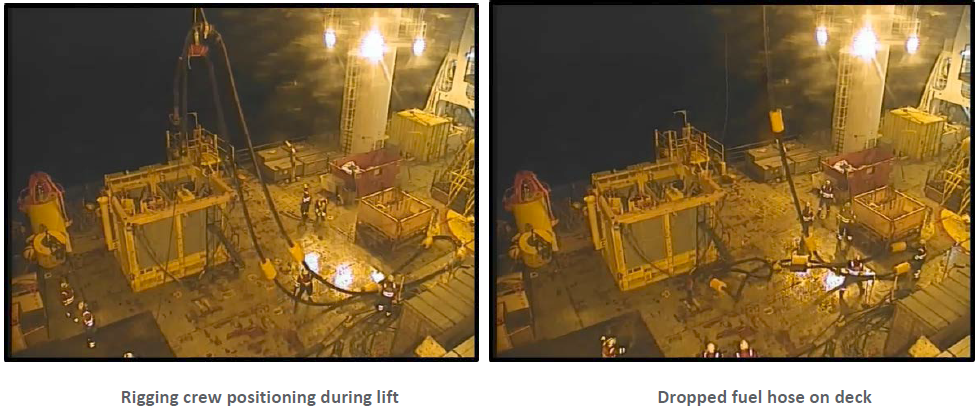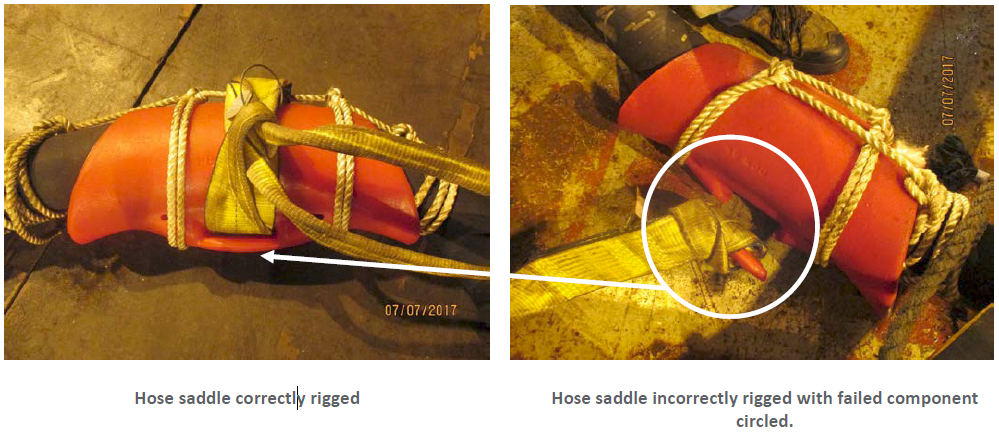Bunkering hose dropped to deck – incorrect lifting procedure
What happened?
A bunkering hose was dropped to deck from 11m in the air. A vessel had just completed cargo operations with a supply vessel. The operation had included the transfer onto the vessel of a fuel bunker hose. In preparation for fuel bunkering operations the vessel rigging crew lifted the hose using the pre-installed hose saddles and lifting slings that were attached. When the hose was approximately 11m up, one end of the hose dropped to the deck. No-one was harmed.

What went wrong? What were the causes?
On inspection, it was identified that the lifting sling had been incorrectly installed onto the hose saddle. The sling should have been choked around the saddle and fuel hose but instead, was found choked around the non-load bearing urethane sling guide.
Although no-one was harmed, and no-one was stood directly under the load, CCTV footage shows the deck crew being in “at risk” positions during the lifting operation and handling the load for no apparent reason.

What lessons were learnt? What actions were taken?
- Safe positioning of lifting crew during crane operations – active supervision at all times;
- Thorough inspection – before use – of all pre-rigged lifting equipment coming from external parties;
- Reiteration of the importance and the correct use of Lift plans;
- Stop the job when exposed to unfamiliar equipment!
Members may wish to review the following incidents:
Safety Event
Published: 23 August 2017
Download: IMCA SF 21/17
IMCA Safety Flashes
Submit a Report
IMCA Safety Flashes summarise key safety matters and incidents, allowing lessons to be more easily learnt for the benefit of all. The effectiveness of the IMCA Safety Flash system depends on Members sharing information and so avoiding repeat incidents. Please consider adding safetyreports@imca-int.com to your internal distribution list for safety alerts or manually submitting information on incidents you consider may be relevant. All information is anonymised or sanitised, as appropriate.
IMCA’s store terms and conditions (https://www.imca-int.com/legal-notices/terms/) apply to all downloads from IMCA’s website, including this document.
IMCA makes every effort to ensure the accuracy and reliability of the data contained in the documents it publishes, but IMCA shall not be liable for any guidance and/or recommendation and/or statement herein contained. The information contained in this document does not fulfil or replace any individual’s or Member's legal, regulatory or other duties or obligations in respect of their operations. Individuals and Members remain solely responsible for the safe, lawful and proper conduct of their operations.
